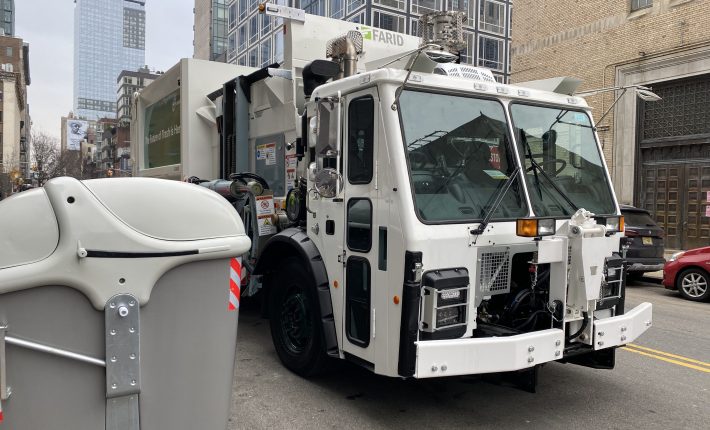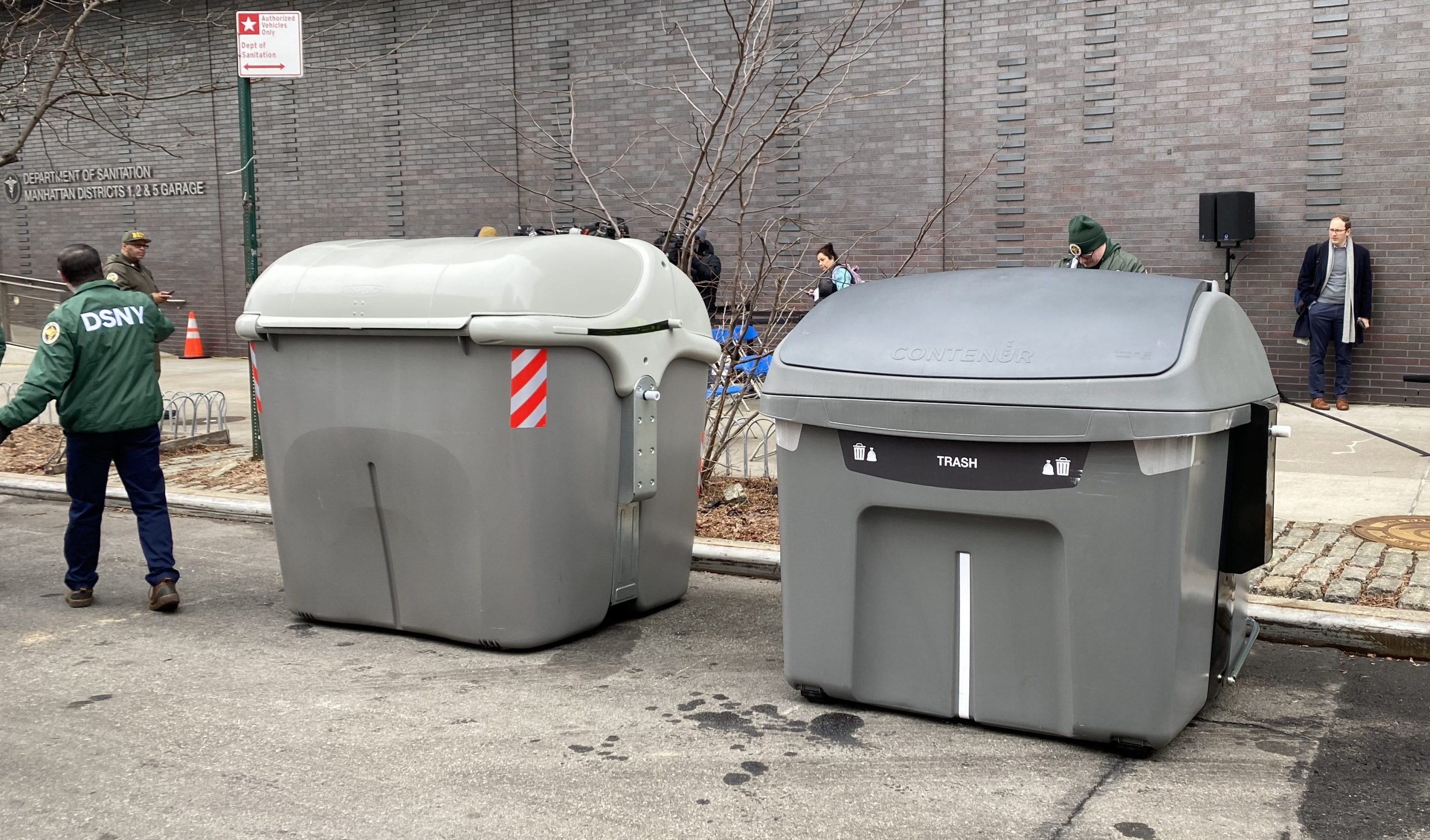Owners of mid-sized buildings would have to pay to maintain and install curbside trash bins as part of the city's push to move trash from the sidewalk to the street under new legislation in the City Council.
The bill from Council Member Crystal Hudson (D-Brooklyn) would require property owners in 10- to 30-unit buildings to pay up to $55 per unit per year to use curbside trash containers installed by the city — and sets a deadline of 2032 for the city to complete the shift to containerization.
Building owners would be able to opt out and use a different collection method approved by the Sanitation Department, such as the city's new official sidewalk wheelie bin, which costs a similar, albeit one-time, amount per bin.
DSNY already plans to require buildings with 10 to 30 units to set out their garbage in fixed containers in the roadbed or on the sidewalk in wheeled bins. Hudson's proposal would add a charge for the street-side enclosures, set a deadline for citywide implementation, and establish specific mandates that Hudson said will help advance progress toward containerization.
"By mandating the storage and collection of residential waste in large residential buildings using on-street containers, the New York City Council can finally bring New York City into the 21st century," she said in a statement.
The proposed $55 per-unit fee would be "partially or wholly discounted" for Mitchell-Lama developments housing moderate and middle-income residents, according to the bill. Revenue would go toward funding the purchase and setup of the bins, along with repair and cleaning.
The annual cost is higher than a one-time wheelie bin purchase, but the street containers remove the need to find storage for days when collection isn't happening and allow buildings to set out trash earlier in the day, Hudson said.
"With containerization, building staff won’t have to wait until 8 p.m. to put out the trash and can get home to their families earlier," the lawmaker said.
The Council proposal would codify a price tag and deadline for the city's transition from mountains of oozing trash bags on the sidewalk to the curbside bins that have long been common in global cities from Buenos Aires to Singapore.
The law is "essential" for the success of the citywide roll-out of the street-side containers, said DSNY Commissioner Jessica Tisch at a Council oversight hearing Wednesday.
"If you are interested in seeing full-scale containerization across the city, it must pass, and we support the concept of this legislation in the strongest terms," the trash czar told lawmakers.
City rules required smaller buildings of nine or fewer dwellings to switch to wheelie bins on the sidewalk as of last week, though fines for non-compliance don't start until Jan. 1. The wheeled containers cost around $46-53 each.
For larger housing with 31 units or more, DSNY plans to mandate stationary in-street containers. Boxes will be assigned to each building, as opposed to shared containers the city has tested in a small part of West Harlem. The agency will launch a neighborhood-wide pilot for the medium and large buildings next June, also in West Harlem.
New York's Strongest will also test out a new side-loading collection truck to hoist the curbside containers — which the agency dubs "Empire Bins." Officials awarded a $7 million contract to Spanish company Contenur on Tuesday for containers for buildings greater than 30 units, which covers some 19,700 buildings with 1,731,000 apartments, according to the City Record.

The city should be maintaining the on-street containers, said Clare Miflin, executive director of the Center for Zero Waste Design, who recently released a report advocating for the city to allow street containers for smaller buildings — ideally shared between several complexes to avoid clogging sidewalks.
Miflin criticized Hudson's bill for codifying rules for a program the city is still testing out.
"If you’re doing a pilot, evaluate a pilot before you mandate," Miflin told Streetsblog. "I just don’t want them to lock in something that hasn’t been piloted."
The Council will hold a hearing on Wednesday on Hudson's bill and nine other proposed laws related to waste containerization.
Other pieces of legislation on the agenda include bills to enact steeper fines for buildings that fail to set out their trash correctly, reimburse landlords who bought the city's bins for smaller buildings, make buildings with 100 or more units provide large Dumpsters, and require city-owned non-residential buildings use containerized waste by 2030.
Update (Wednesday, Nov. 20, 2024, 2:26 p.m.): This story has been updated to include comment from DSNY Commissioner Jessica Tisch.






